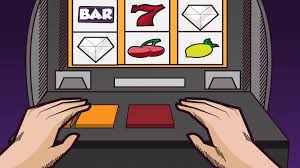Understanding the Profit Potential of Slot Machines
7
2025 / 02 / 19
Slot machines have always been a focal point of fascination for gamblers, sparking an endless array of attempts to "beat the system." From the high-tech to the low-tech, people have tried various means to crack slot machines and claim big wins. But, it’s crucial to understand that all these attempts are illegal and can lead to severe consequences.
While slot machines have become much more secure in modern casinos, it’s still interesting to explore the history of cheating techniques used in the past. Below are some of the most notorious cheating methods, which are not only illegal but also no longer viable due to advancements in technology. Let’s explore these curious attempts at manipulating slot machines.
Understanding how slot machines work is crucial for any discussion of cheat codes. In regulated casinos, slot machines are governed by a random number generator (RNG) that ensures every spin is entirely random. The gambling authorities audit and monitor these machines rigorously to guarantee fairness.
However, some players have attempted to manipulate the system by finding and exploiting potential vulnerabilities in the source codes of the machines. While there have been cases of hackers gaining access to slot machine software, these instances were rare, illegal, and most of those who attempted this were caught. Remember, cheat codes are a myth, and attempting to use them can lead to serious legal consequences.
In the 1960s, some slot machines could be manipulated with a strong magnet. Cheaters would use magnets to alter the path of the reels, preventing them from stopping in their predetermined positions. When the winning combination appeared, the cheater would remove the magnet to claim the payout. However, modern slot machines are built with magnetic shielding, making this method completely ineffective today.
One method that has been attempted in more recent years is using a mobile phone to film the reels and analyze the results. Some players have tried recording the slot's reel sequence and sending it to accomplices, who would then calculate the algorithm to figure out when a winning combination would appear. While it’s possible to capture video footage, analyzing and exploiting the random number generator’s results is highly complex, making this technique highly unlikely to succeed.
Historically, cheaters often used fake or altered coins to trick machines. Some of the most common coin-related cheating methods included:
Shaved Coins: Slot machines from earlier eras used light sensors to register the size of inserted coins. Cheaters would shave the edges of a coin, which would allow the sensor to accept it as a real coin.
Fake Coins: Some scammers created fake coins that resembled real casino tokens or coins in both size and weight. Slot machines were once less sensitive, which made it easier for fake coins to pass undetected. Today, however, most slot machines have sophisticated mechanisms that reject fake coins.
Coin on a String (Yo-Yo Cheat): A method known as the "yo-yo cheat" involved attaching a coin to a string. The cheater would drop the coin into the slot, activate the machine, and then pull the coin back up before the machine could complete its cycle, allowing the coin to be reused. Needless to say, this is a method that would be easily caught today, as it requires constant physical manipulation.
In addition to fake coins, there have been several devices designed to cheat the system:
Bill Validator Devices: A device used to trick the slot machine into thinking it was accepting a higher denomination bill than it actually was. This device was placed around a $1 bill and made the machine think it was accepting a $100 bill.
Light Wands: Some cheaters used light wands to blind the optical sensors in the machine, making it difficult for the slot to track the number of coins being inserted. This would "confuse" the machine and allow cheaters to steal winnings.
Some cheats involved exploiting malfunctions in the machine's software or hardware. For example, a malfunction might cause a machine to fail to recognize a payout condition, or to register a larger payout than intended. While these malfunctions could sometimes be used to a cheater's advantage, today’s machines are thoroughly tested and updated to prevent such issues from occurring.

